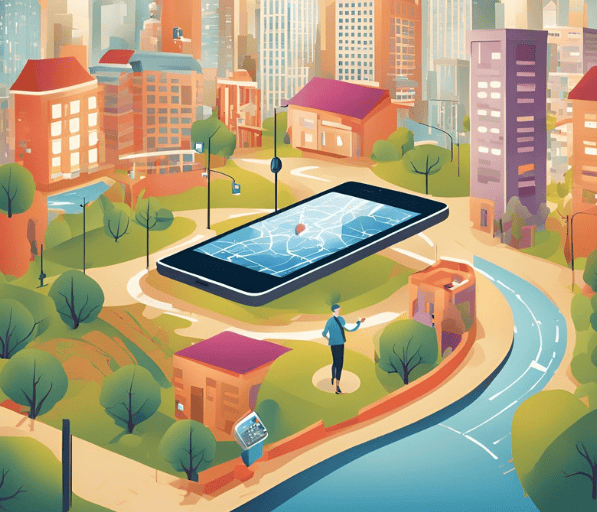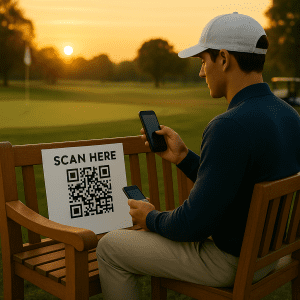In today’s digital marketing landscape, geofencing has emerged as a powerful tool, enabling brands to deliver location-specific content to consumers. By setting virtual perimeters around physical locations, businesses can engage users with tailored messages as they enter or exit these zones. However, with great power comes great responsibility. The ethical considerations and consumer privacy implications of geofencing are paramount, especially as consumers become increasingly aware of how their data is collected and used.
What is Geofencing, and How Does it Work?
Geofencing utilizes technologies like GPS, RFID, Wi-Fi, and cellular data to create virtual boundaries around specific geographic areas. When a user’s mobile device crosses these boundaries, it can trigger various actions, such as sending push notifications, text messages, or targeted advertisements.
Using these technologies, marketers can reach consumers with messages tailored not only to their location but also to the specific context or time, potentially enhancing relevance and engagement. But while geofencing marketing offers immense potential, it brings forth ethical and privacy issues that must be addressed.

Ethical Implications of Geofencing Marketing
Informed Consent: Many consumers may be unaware that their location data is being tracked. Ethical marketing practices involve being upfront about how data is used, and giving users the choice to opt-in or out.
Data Security: Companies must safeguard collected location data to avoid security breaches that can lead to data misuse or unauthorized access.
Intrusiveness: Geofencing, if overused or used indiscriminately, can feel intrusive. A careful balance is necessary to ensure that users don’t feel surveilled.
Relevant Stat: According to Pew Research, 72% of Americans say they feel “very concerned” about how their data is used by companies. This highlights the need for transparent, respectful geofencing practices to avoid losing consumer trust.
Privacy Concerns with Geofencing Technology
Privacy is a fundamental right, and as consumers grow more vigilant about how their personal information is utilized, it’s vital for brands to align their geofencing strategies with respect for user privacy. Key concerns include:
Lack of Transparency: Many consumers are unaware their movements are being monitored, even if anonymously, for marketing purposes.
Data Misuse: Location data can be highly sensitive, potentially revealing intimate details about daily routines, health, and other personal areas. This data, if misused, could lead to reputational damage or legal consequences for brands.
Security Risks: Location data must be stored securely to prevent breaches that could expose consumers’ personal habits and locations to malicious actors.
Regulatory Landscape Around Geofencing and Data Privacy
Several data privacy regulations have emerged in response to these concerns, particularly in the European Union and the United States. Key regulations include:
General Data Protection Regulation (GDPR): The GDPR mandates explicit user consent for data collection and processing in the EU, including location information.
California Consumer Privacy Act (CCPA): In the U.S., the CCPA gives California residents the right to know what personal data is collected and to opt out of its sale.
Connecticut’s Data Privacy Act (CTDPA): This act takes geofencing limitations further, prohibiting it within 1,750 square feet of certain sensitive facilities, protecting consumer data surrounding health and other personal areas .
These laws reflect an increased focus on protecting consumer data rights in response to the growing presence of location-based marketing tactics.
Best Practices for Ethical Geofencing
Brands that use use geofancing should prioritize ethical standards and comply with privacy regulations. Here are several best practices to help ensure ethical geofencing:
Obtain Explicit Consent: Always use transparent opt-in mechanisms to collect location data only with user consent.
Be Transparent: Explain clearly how location data will be used. Providing easy-to-understand privacy policies fosters trust.
Limit Data Collection: Collect only the data needed for specific campaigns, avoiding unnecessary gathering of personal information.
Ensure Data Security: Implement robust security measures to keep location data secure, preventing breaches and unauthorized access.
Provide Opt-Out Options: Give users control over whether they wish to continue sharing their location data.
By following these principles, brands can leverage the power of geofencing while respecting consumer privacy.
Striking the Balance: Personalization with Privacy
While personalized marketing can enhance the user experience, brands must balance personalization with a strong commitment to privacy. Overly aggressive tactics can harm a brand’s reputation and lead to backlash from consumers who feel their personal space has been violated.
Relevant Stat: A Salesforce study found that 84% of consumers say they want to be treated like a person, not a number. This reinforces the importance of using geofencing responsibly, where consumers feel engaged rather than exploited .
Build With Us
Curious to see how geofencing can be both powerful and responsible? Check out Adzze’s blog to discover the top five reasons to adopt this powerful tool. From local targeting to personalized engagement, see how geofencing can transform the way you reach and connect with consumers at the right time and in the right place.
To Wrap Up
Geofencing offers brands unprecedented access to consumers in real-time. As we move further into a data-driven future, ethical geofencing is becoming a necessity, not just a best practice. By prioritizing transparency, data security, and respect for user choice, brands can successfully implement geofencing strategies that foster both trust and engagement.
Check out our short video “Tired of Ads Lost in Digital Noise?” to see how Adzze innovates in marketing approaches, and learn how Adzze can help you cut through the noise and engage consumers effectively.







